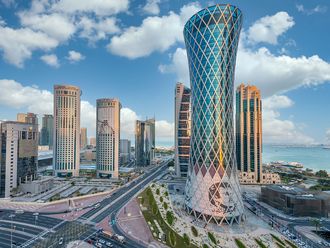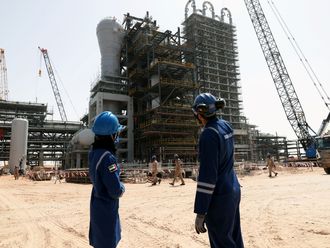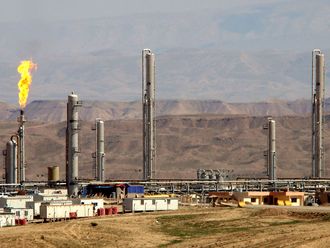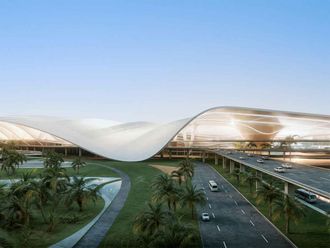Abu Dhabi: Bahrain is studying the possibility of cutting subsidies on fuel and electricity as the country’s economy gets hit due to low oil prices, which have plunged by more than 50 per cent since last year.
“We started looking back at subsidies and cutting back and there are many facets that we are working on,” Zayed R. Al Zayani, Bahrain’s Minister of Industry and Commerce, told Gulf News on Tuesday on the sidelines of the Arab Businessmen and Investors Conference in Abu Dhabi.
“We already revised our gas pricing in April last year. We lifted subsidy on meat products from October 1 and we are looking at other subsidised products or services like electricity and fuel subsidies which we are studying.”
He said they are also looking at improving government revenues through services extended by the government and could impose some charges.
“We are going through restrategy there. There are a lot of services that we do for free and there are some services with the same rates for the past 30 to 40 years.”
Asked whether Bahrain is planning to impose any taxes to boost government revenue, Al Zayani said they are discussing the possibility of imposing Value Added Tax (VAT) at the GCC level.
“There was a recent meeting of GCC ministers of finance and the heads of central bank with Christine Lagarde [International Monetary Fund head]. One of the things that was discussed was imposing VAT in GCC. If that happens, that will be rolled out across GCC as one package and not country by country,” he said.
As oil prices dropped from $115 a barrel in June last year to less than $45 in recent times, Bahrain’s budget is suffering. Al Zayani said their revenues are down by 60 to 70 per cent on the oil side.
“There is some slight savings but the losses are bigger than the gains. We need to get better oil price.”
“We saw Qatar announce its 2016 budget and it is the first deficit budget in the history of Qatar. Even a resourceful rich country is suffering.”
The government is focusing on increasing the contribution of the industrial sector to the economy. The country is in the final process of developing a new industrial strategy to focus on certain sectors with the resources available in Bahrain.
“We want to be more specific on industries that make sense to be based in Bahrain from a resource point of view, logistic point of view. We are looking for more export-based industries, labour opportunities and creating employment. Hopefully the new industrial strategy should be out within the first quarter of 2016,” he added. “If you take out oil and gas, the contribution of industry is very small, we want to grow that base.”
Speaking about the oil and gas sector in Bahrain, he said they recently created a company called Tatweer to boost oil production. “They managed to increase but not to the full potential and it is still an ongoing task,” Al Zayani said.
The total oil production in Bahrain is 180,000 barrels a day. Tatweer has a partnership with the UAE-based Mubadala, US Occidental Petroleum and Bahrain’s Oil and Gas Holding Company.
As oil prices slide, GCC governments are cutting subsidies to increase their revenues. The UAE announced a change in its fuel prices scheme on August 1 and linked the prices to international average fuel prices.









